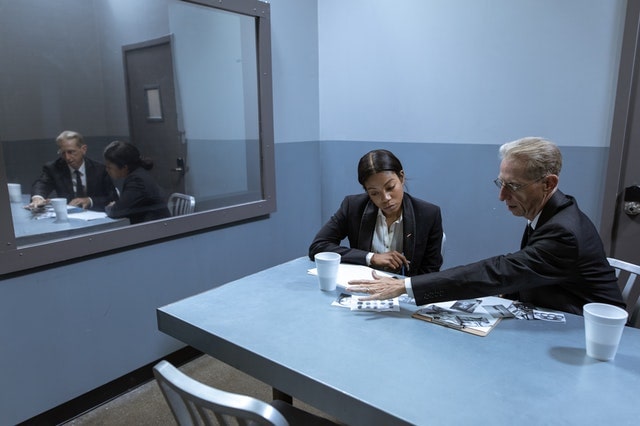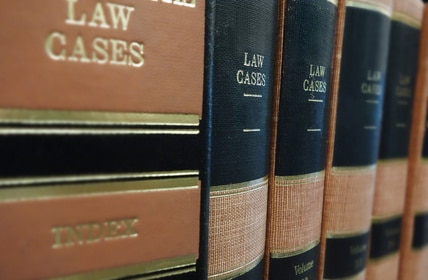Specialist Attorney Insights on the Relevance of Habeas Corpus
Specialist Attorney Insights on the Relevance of Habeas Corpus
Blog Article
Understanding the Function of a Post-Conviction Lawyer in Seeking Justice After a Criminal Conviction
In the complex landscape of post-conviction legal procedures, the duty of a post-conviction legal representative is pivotal in browsing the path to justice after a criminal sentence. Beyond the boundaries of a trial, these attorneys take part in a diverse method targeted at revealing brand-new evidence, challenging lawful mistakes, and promoting for their clients' civil liberties. The intricacies of post-conviction job need a mix of legal acumen, investigatory abilities, and critical believing to decipher the complexities of a situation and go after opportunities that may have been forgotten or underexplored. As the search of justice prolongs past the confines of initial process, the function of a post-conviction legal representative arises as a beacon of wish for those looking for to rectify oppressions and recover their civil liberties within the legal system.
Post-Conviction Attorney's Investigative Work
Post-conviction attorneys take part in meticulous investigatory job to discover new proof, step-by-step errors, or misconduct that could possibly result in overturning a sentence. This investigatory phase is crucial in the post-conviction process as it intends to identify any kind of ignored details or lawful errors that might have affected the end result of the preliminary test. Post-conviction attorneys look into case documents, witness statements, and lawful paperwork with a fine-tooth comb, looking for any type of discrepancies or abnormalities that could be premises for appeal.
Via comprehensive examination, post-conviction legal representatives aim to shed light on prospective oppressions that might have occurred during the original trial. By inspecting every facet of the lawful process, post-conviction attorneys work tirelessly to discover any type of aspects that may have affected the verdict.
Crafting Appeals and Petitions
In the pursuit of justice after a conviction, skilled legal representatives diligently craft allures and petitions to present engaging arguments for the reconsideration of legal decisions. Crafting allures and petitions requires a deep understanding of the legal system, attention to detail, and tactical thinking. Post-conviction lawyers analyze trial records, recognize possible mistakes or offenses of civil liberties, and establish lawful disagreements to challenge the conviction or sentence.
When crafting an appeal, legal representatives concentrate on highlighting lawful mistakes that may have affected the outcome of the instance. They look into instance legislation, statutes, and legal criteria to sustain their disagreements. Petitions, on the other hand, might include providing new proof that was not readily available during the trial or showing adjustments in the legislation that require a review of the sentence.
Additionally, post-conviction attorneys should stick to rigorous step-by-step regulations and due dates when filing allures and requests. They should present their disagreements plainly and persuasively to convince the court to provide alleviation to their clients. Via precise crafting of allures and requests, post-conviction lawyers make every effort to protect justice for people who have been wrongfully founded guilty or unfairly punished.

Seeking Post-Conviction Relief
Post-conviction relief incorporates a variety of legal devices created to challenge the legitimacy of a conviction or sentence. Post-conviction lawyers play a critical function in navigating these intricate procedures, making certain that all legal options are checked out to correct oppressions that may have taken place during the test or sentencing phase.
One typical type of post-conviction alleviation is submitting a petition for post-conviction relief, usually based on cases of inadequate assistance of counsel, prosecutorial misbehavior, recently found evidence, or constitutional infractions. Experienced post-conviction attorneys have the abilities and expertise essential to recognize sensible lawful cases, conduct investigations, and existing compelling disagreements to protect relief for their clients.
Utilizing Forensic Evidence
When challenging a conviction or click here for info sentence, the strategic usage of forensic evidence can be a powerful tool in post-conviction lawful procedures. Forensic evidence includes a variety of scientific techniques used to investigate crimes and develop realities in court. Post-conviction legal representatives can utilize forensic proof to challenge the validity of sentences by offering brand-new scientific findings that were not readily available throughout the original trial.

Engaging in Sentence Adjustments
Post-conviction attorneys may check out the possibility of sentence modifications as a legal avenue to deal with disproportionate or unjust sentences handed down in criminal cases. Sentence modifications involve looking for adjustments to the regards to an accused's sentence after a conviction has happened. These modifications can consist of reducing the size of a sentence, modifying the kind of punishment imposed, or exploring alternative sentencing alternatives.
Post-conviction legal representatives can go after sentence adjustments through various lawful systems, such as submitting motions for sentence decrease, appealing for thoughtful release, or discussing plea deals for reduced sentences. They should carefully assess the situations of the instance, evaluate the legal premises for looking for a modification, and existing compelling disagreements to the court sustaining the requirement for a revised sentence.
Participating in sentence adjustments requires a thorough understanding of criminal regulation, sentencing standards, and the particular treatments associated with seeking post-conviction alleviation. Post-conviction lawyers play an essential duty in promoting for reasonable and just end results by difficult sentences that are unduly rough or do not line up with the principles of justice.
Final Thought
Finally, the function of a post-conviction lawyer is vital in seeking justice after a criminal conviction. Via investigative job, crafting appeals and applications, pursuing post-conviction relief, making use of forensic evidence, and taking part in sentence modifications, these lawful professionals play a crucial duty in advocating for their customers and making certain that their rights are maintained within the criminal justice system. Their dedication and experience are important in browsing the intricacies of post-conviction proceedings and accomplishing a reasonable end result for individuals dealing with criminal sentences.
Report this page